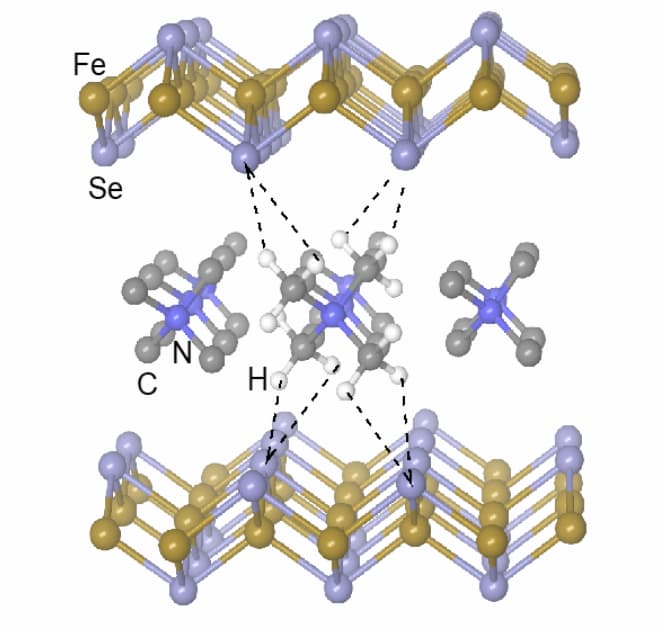Computer-assisted Design of New Hybrid Superconductors for Energy-efficient Technology
FY25 SI-GECS Type 2
Abstract

Superconductivity is an enigmatic phase of matter in which, all resistance to electrical current is lost. Below a critical temperature, the electrons in the superconductor form a coherent fluid with two fascinating properties. First, it conducts electricity without loss, i.e. the electrical resistance becomes zero. Second, it expels any magnetic field from the interior of the material. Thus, superconductors have several energy-related applications including (1) electrical transmission without loss, (2) energy storage in superconducting rings, and (3) public transportation via levitating trains. In this SI-GECS project, an interdisciplinary team of three PIs will work together to create a new class of superconductors based on organic matter. We will first synthesize layered inorganic superconductors and then intercalated them with organic molecules. The goal will be to enhance the critical temperature of the layered superconductors after intercalation with organic molecules. We will also develop a machine learning to help predicting future hybrid superconductors. Our team consists of Fazel Tafti (experimental physicist experienced in the synthesis of inorganic superconductors), James Morken (organic chemist with expertise in the synthesis of chiral organic molecules), and Jan Engelbrecht (theoretical physicist with experience in developing machine learning tools to find new superconductors).

